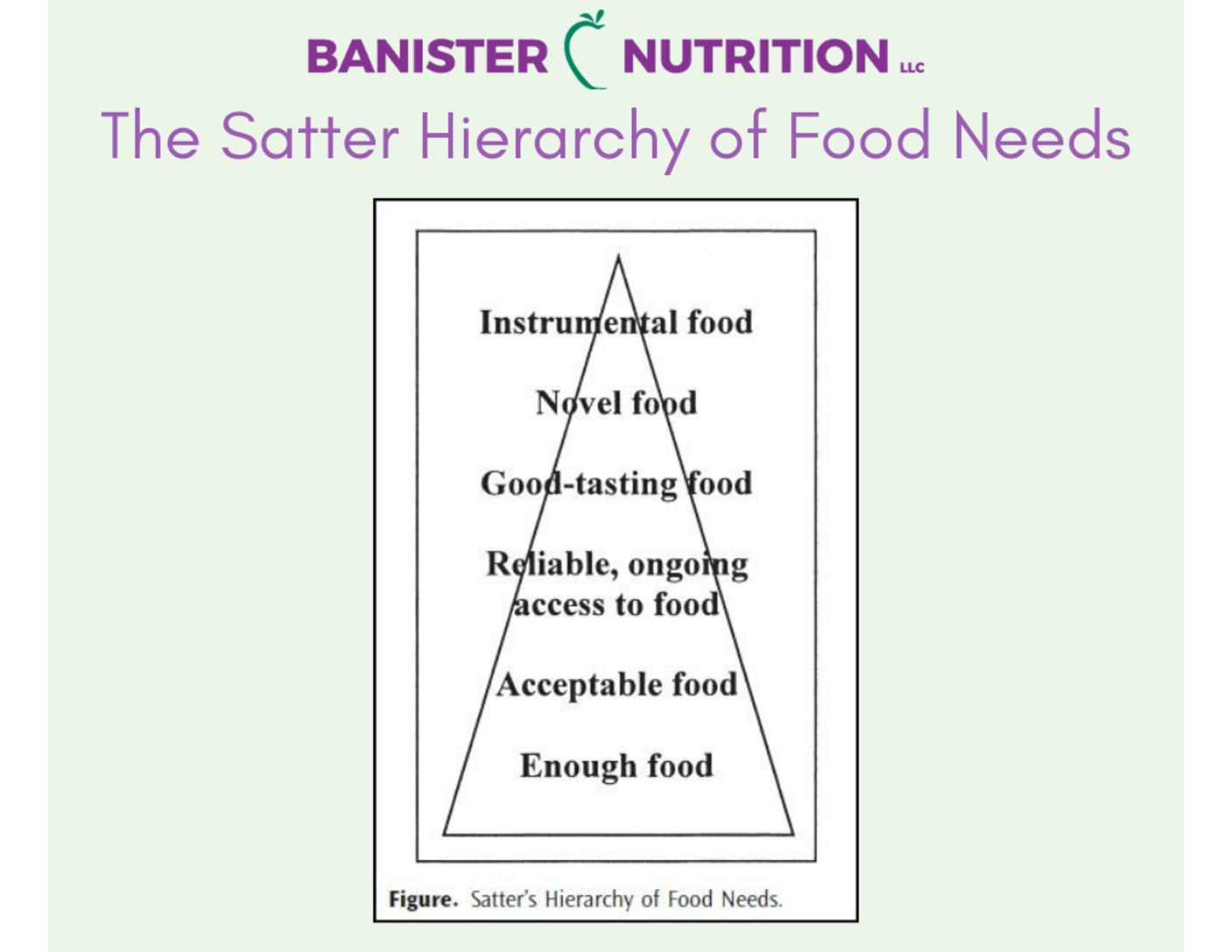The Satter Hierarchy of Food Needs
Do you ever feel caught up and confused by the mixed messages out there about nutrition? There’s an endless supply of opinions about food with a quick google search. But how much of this information is actually helpful?
Because of the abundance of varied nutrition information, it can be easy for us to fall into the trap of controlling every little detail about our food choices. This micromanaging creates an obsessive relationship with food, which ultimately leaves us feeling overwhelmed and frustrated. Choosing a style of eating that best serves you and your needs is the best approach to improving behavioral patterns around food.
The Ellyn Satter Hierarchy of Food Needs focuses on what’s actually important:
-
Enough Food
-
If you are in a place of food insecurity, your main priority is ensuring you have adequate foods available to you. Food insecurity can include limited financial resources or the intentional restriction of food.
-
-
Acceptable Food
-
When your home is full of plenty of foods to choose from, you then are able to apply your preferences to your food choices. Your preferences may be influenced by your culture or life experiences growing up – this is for you to explore and honor.
-
-
Reliable, ongoing access to food
-
Knowing that you will have ongoing access to food means that you’re able to plan ahead for future meals. This could look like planning a fun dinner meal for the weekend with some tasty ingredients that you enjoy.
-
-
Good-tasting food
-
When food is restricted or limited, foods often taste so delicious that it’s difficult to stop eating them. Overtime with consistent nourishment from all foods, you’ll notice that you’re more in control of your food choices, therefore eliminating those chaotic feelings with food.
-
-
Novel Food
-
After allowing yourself to have those yummy foods for a long period of time, you may find yourself searching for new foods to try. This is because we will sometimes get bored with the same foods day after day. Food variety is key.
-
-
Instrumental food
-
Once you have developed a solid, healthy relationship with food by working your way through these levels, you are then able to make food choices more specific to your goals that meet your physical, emotional, and spiritual needs.
-
Remember that it takes time working through these different levels. If you have been living a life full of strict dieting and food rules, you may take some extra time in certain areas. Meet with a dietitian to help guide you through the process!
-CC



